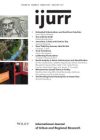The ‘cities without slums’ initiative has resuscitated an old and dangerous term from the habitat vocabulary. Use of the word ‘slum’ will recreate many of the myths about poor people that years of careful research have discredited. The UN has employed the word in order to publicize the seriousness of urban problems and to improve its ability to attract funding with which to tackle the issue. But in using such an emotive word the UN risks opening a Pandora’s box. The campaign implies that cities can actually rid themselves of slums, an idea that is wholly unachievable. The word is also dangerous because it confuses the physical problem of poor quality housing with the characteristics of the people living there. The UN knows that earlier research has rehabilitated most ‘slum dwellers’ but ignores the danger of conjuring up all of the old images. In the process, the campaign also offers an oblique invitation to governments to look for instant solutions to insoluble problems. Demagogic governments have always shown a willingness to demolish slums despite the fact that experience has shown that policy to be ineffective. I fear that the new campaign will encourage more to employ this foolish policy. Words need to be employed carefully. RÉSUMÉ: L’initiative ‘Villes sans taudis’ a ressuscité un terme ancien et dangereux du vocabulaire de l’habitat. Utiliser le mot ‘taudis’ va recréer toute une mythologie sur les pauvres que des années de recherches consciencieuses avaient réfutée. L’ONU a fait ce choix pour souligner la gravité des problèmes urbains et renforcer sa capacitéà attirer des fonds avec lesquels résoudre la question. Cependant, ce mot étant connotéémotionnellement, l’ONU risque d’ouvrir une boîte de Pandore. La campagne implique que les villes peuvent réellement se débarrasser des taudis, ce qui est totalement irréalisable. Le mot est dangereux aussi parce qu’il mélange le problème matériel de la piètre qualité des logements et les caractéristiques des populations qui y vivent. L’ONU sait que des études antérieures ont réhabilité la plupart des ‘habitants de taudis’, mais elle ignore le risque liéà l’évocation des vieilles images. Parallèlement, la compagne invite indirectement les gouvernements à trouver des solutions immédiates à des problèmes insolubles. Les gouvernements démagogues se sont toujours montrés disposés à démolir les taudis même si l’expérience a prouvé l’inefficacité de cette politique. Je crains que cette nouvelle campagne n’en encourage d’autres à appliquer cette stratégie insensée. Il faut employer les mots avec circonspection.
Details
Written by:
ALAN GILBERT
Digital Object Identifier (DOI)
10.1111/j.1468-2427.2007.00754.x
About DOI
Read full article as PDF
Read full article as HTML
See the references for this article
